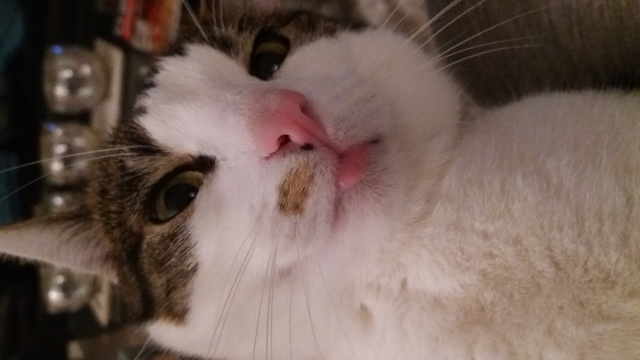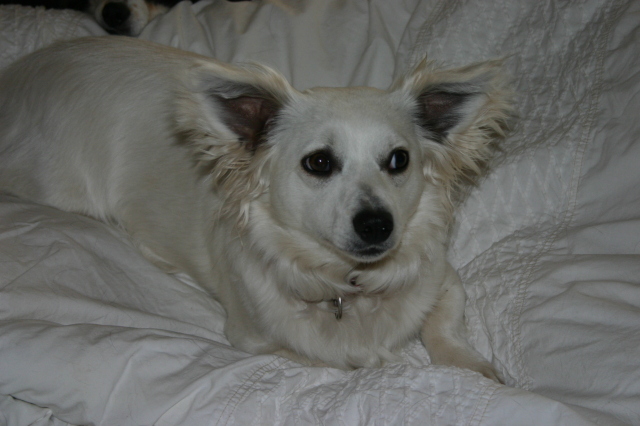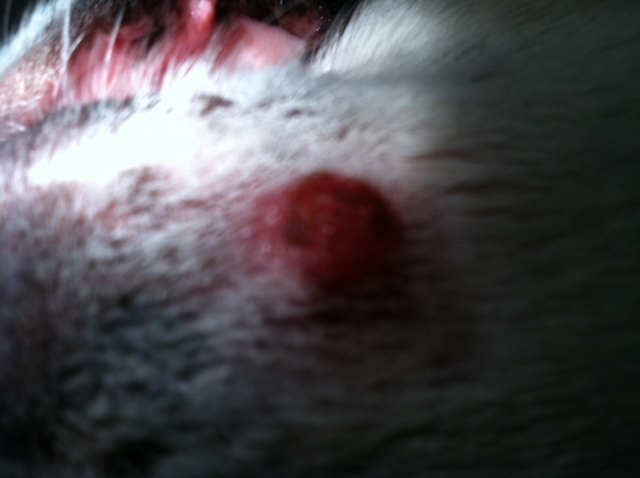QuestionI read on a chain email, that cats throw up twice there body weight when dizzy, after trying to explain that its impossible, I was hoping you could offer some insight.
AnswerNot true.
Here are some true and very interesting facts to pass around.
Healthy dogs and cats do not stink and need baths, vomit hairballs, drink water (cats only), eat paper and many more.
EARLY WARNING SIGNS OF ILLNESS FOR DOGS AND CATS
Most health problems are the result of an underlying energy imbalance, made worse from poor diet and vaccination. They are rarely acute diseases (except injuries). Therefore, you may find that the problem does not clear up as you expect or it recurs. If so, you are dealing with an underlying predisposition to illness, and these clues to underlying ill health will help you select a remedy and monitor the results. As we cure animals of "disease", we find
that certain other "NORMAL" things go away, too. Do not be satisfied until most of the following symptoms are gone. In young, apparently healthy animals, these apparently "normal" problems may be the only indications to start treatment. This is only the beginning of a list - as more animals are cured we will find new levels of health. Tracking these is easy when you use the Healthy Animal's Journal by Dr. Christina Chambreau (www.HealthyAnimalsJournal.com)
SIGNS OF UNDERLYING ENERGY IMBALANCE OFTEN DEEMED NORMAL IN DOGS AND/OR CATS
SKIN: doggy smell; attracts fleas a lot; dry, oily, lack-luster coat;
excessive shedding; not grooming, ear problems - waxy, oily, itchy, recurrent mites; eye discharge, tearing, or matter in corner of eyes; raised third eyelid; spots appearing on iris; "freckles" appearing on face; whiskers falling out; fragile, thickened, distorted claws that are painful or sensitive to trim.
BEHAVIOR: Fears(of loud noises, thunder, wind, people, animals, life); too timid; too rough or aggressive (even at play); too hard to train; barks too much and too long; suspicious nature; biting when petted too long; hysteria when restrained; clumsy; indolent; licking or sucking things or people too much; not using litter box or not covering stool.
DIGESTIVE: Bad breath; tarter accumulation; loss of teeth; poor appetite; craving weird things(rubber bands, plastic, dirt, cat litter, paper, dogs eating dog or cat stools, rocks, sticks...); sensitivity to milk; thirst - a super healthy cat on non dry food will drink at most once a week; red gum line; vomiting often, even hairballs more than a few times a year; mucous on stools; tendency to diarrhea with least change of diet; obesity; anal gland problems; recurrent parasites.
STIFFNESS when getting up, early hip dysplasia; tires easily in hot or cold weather; can no longer jump up on counters, or go up or down steps.
TEMPERATURE: Low grade fevers - Normal for healthy cats and dogs is
100-101.5.
AGE & REPRODUCTION: Should live a long life (Shepards 17 years, Danes 12, cats 24). should be able conceive easily, deliver normally, and not pass on "genetic breed" problems.

 cats lip
Question
swollen lip
Hi there. I dont know if th
cats lip
Question
swollen lip
Hi there. I dont know if th
 Sudden aggressive episode - reaction to cortisone therapy?
Question
Maddy - Tibetan Spanie
I have a Tibetan Spanie
Sudden aggressive episode - reaction to cortisone therapy?
Question
Maddy - Tibetan Spanie
I have a Tibetan Spanie
 using Sevin 10 dust around indoor cat?
QuestionHave killed fleas off animals but now fleas in
using Sevin 10 dust around indoor cat?
QuestionHave killed fleas off animals but now fleas in
 Small black bumps on penis
Question
I have a male schnauzer, 5 yrs old. Two
Small black bumps on penis
Question
I have a male schnauzer, 5 yrs old. Two
 Histiocytoma on older dog
Question
Histiocytoma on dog, 1
Our 13 year old
Histiocytoma on older dog
Question
Histiocytoma on dog, 1
Our 13 year old